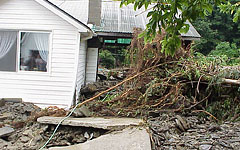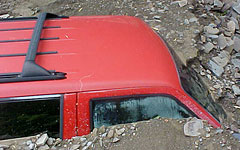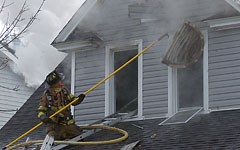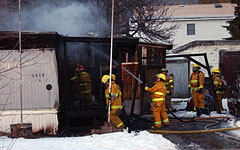 Make a plan
Make a plan
Important things to consider in an emergency family plan: Your family may not be together when disaster strikes, so it is important to plan in advance: how you will contact one another; how you will get back together; and what you will do in different situations.
Contacts
It may be easier to make a long-distance phone call than to call across town, so an out-of-town contact may be in a better position to communicate among separated family members. Ask an out-of-state friend to be your family out of town contact. After a disaster, it is often easier to call long distance. Be sure every member of your family knows the phone number and has coins or a prepaid phone card to call the emergency contact. You may have trouble getting through, or the telephone system may be down altogether, but be patient.
Other Plans in Place
Find out what disaster plans are in place at your work, your children's school and other places your family spends time. Discuss preparedness with your family. Make sure you all understand what types of disasters can occur and what you will do in each case.
Escape Routes
Determine two escape routes from each room in your home.
Meeeting Places
Pick three places to meet: in case of a sudden emergency, like a fire. Decide a location in your neighborhood and lastly, a regional meeting place in case you can't return home.
Children
Teach children how and when to call 9-1-1 and other emergency numbers including fire, police, ambulance, etc. Post these numbers near phones in your home.
Fire Safety
Install smoke detectors on each level of your home, especially near bedrooms and make sure everyone knows where the fire extinguisher is and how to use it.
First-Aid
Learn basic first aid skills, including CPR.
Insurance
Make sure your family has adequate insurance.






